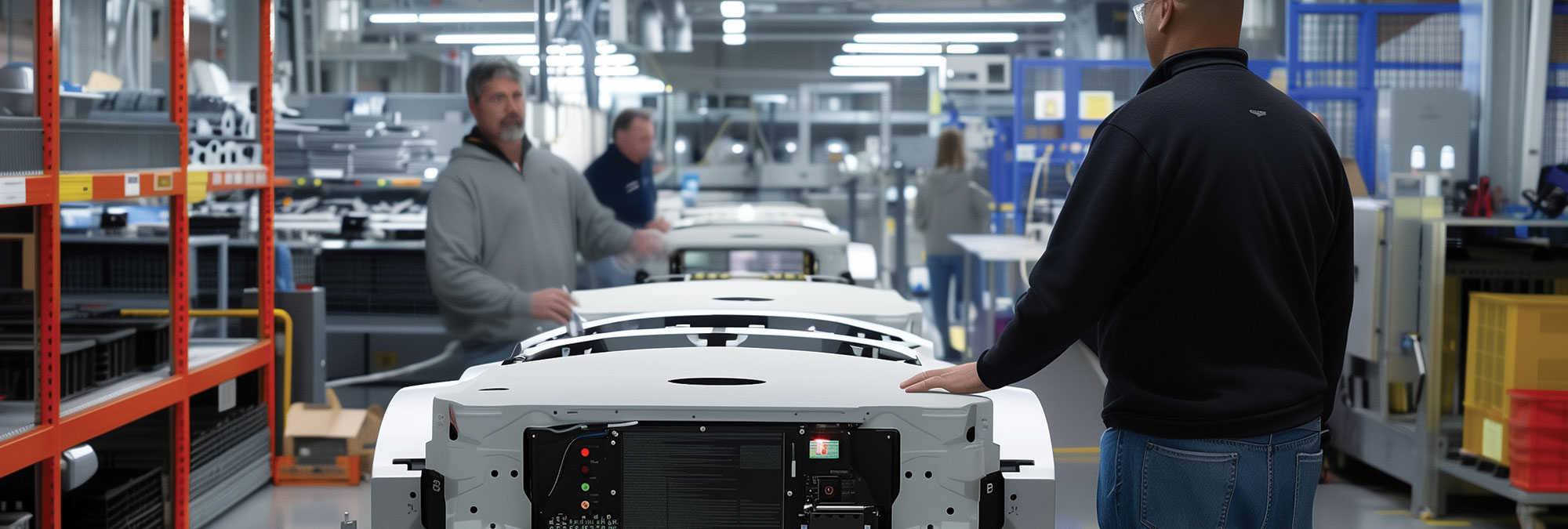Contract Manufacturing (CM), also known as Build to Print (BTP), Copy Exact (CE), Build to Reference (BTR), or High Volume Manufacturing (HVM), is a specialized manufacturing approach wherein a company produces components, assemblies, or products strictly based on client-provided blueprints and specifications. This method allows for a high degree of precision and adherence to design intent, as the manufacturer focuses solely on the accurate replication of the provided design without alterations. Contract Manufacturing is especially prevalent in industries where design integrity, proprietary specifications, and consistent large-scale production are paramount.
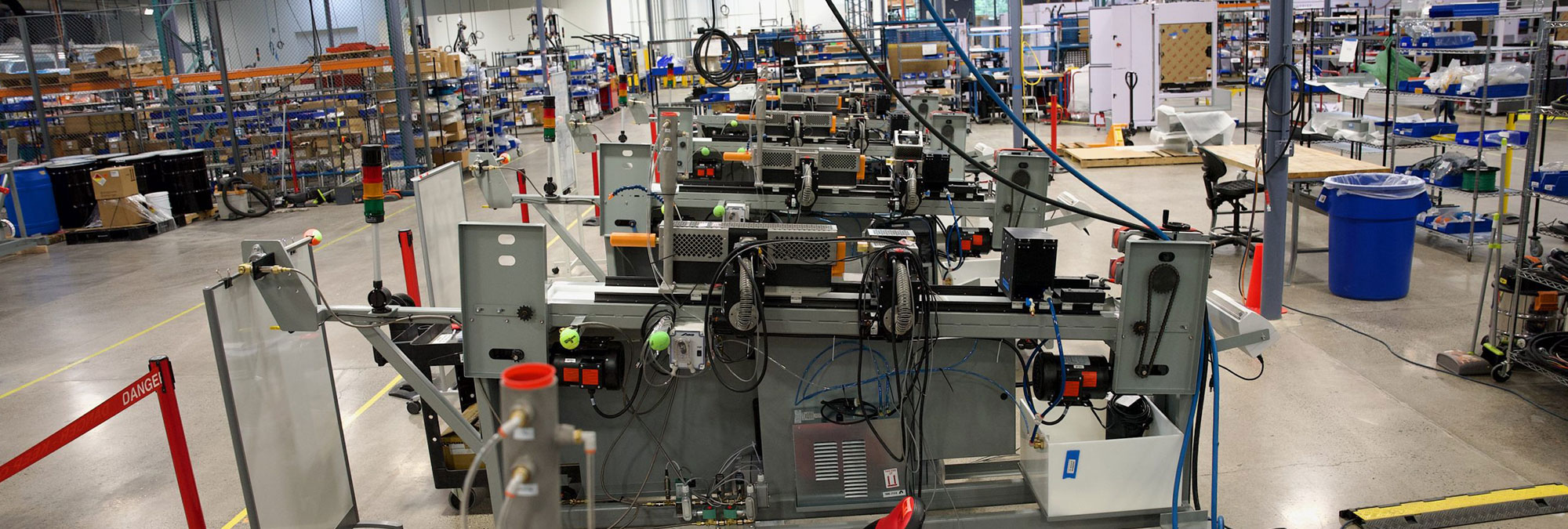
Choosing the right Contract Manufacturer is a critical decision that impacts both the integrity of your design and the consistency of your production standards. Companies generally turn to a Contract Manufacturer (CM) for a variety of reasons, such as being a small business or a startup, needing external labor, simplifying their supply chain, lacking advanced manufacturing expertise, dealing with fluctuating product demand, or wanting to allocate internal resources elsewhere. DWFritz is particularly focussed on emerging growth businesses (start-ups, small cap, mid-cap), allowing for these growth businesses to concentrate on innovation and design while they handle the scalability to high-volume manufacturing.
This article presents a list of key considerations at the strategic and tactical levels that should be evaluated when selecting a contract manufacturer.
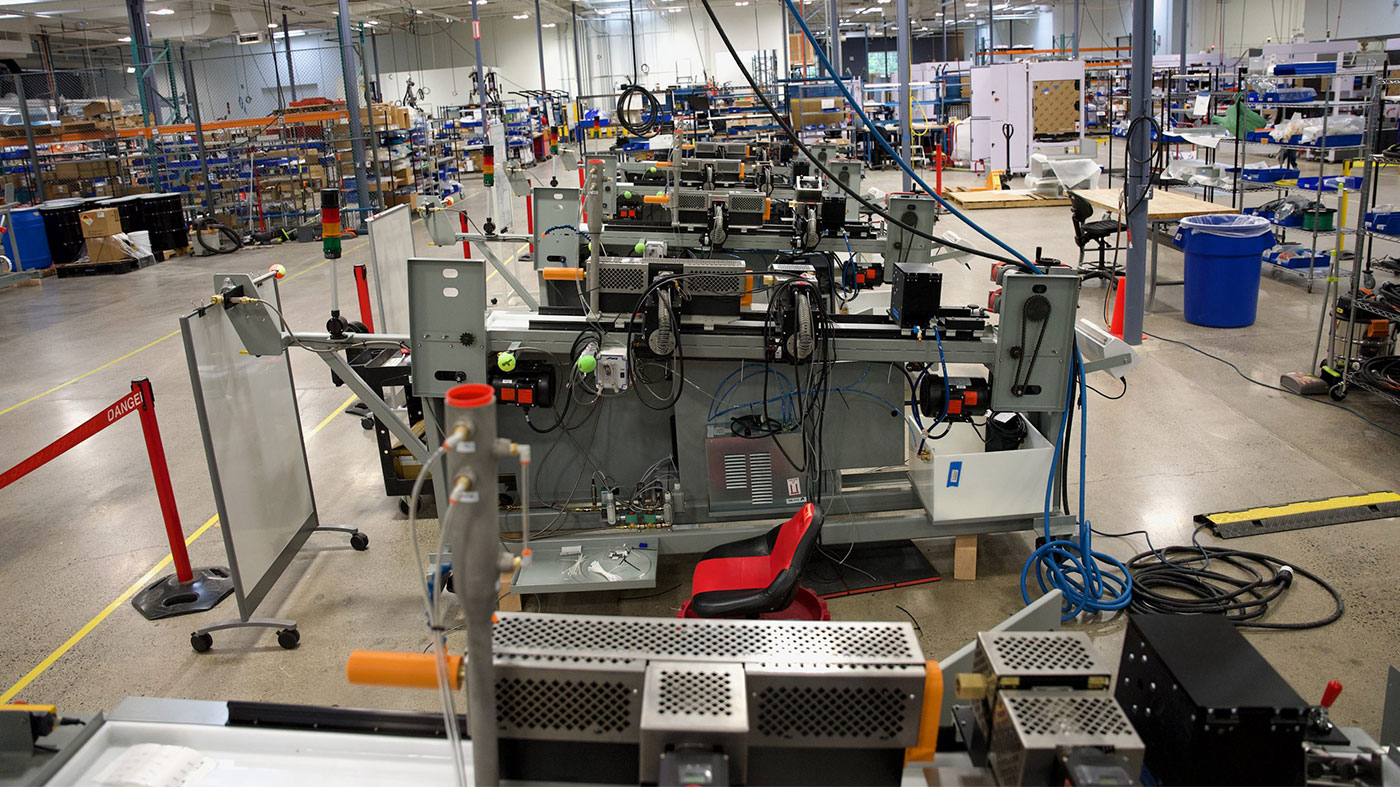
The picture above is an example of a Contract Manufacturing project done by DWFritz. The case study goes into detail how DWFritz manufactured a medical device package and label inspections to increase reliability, decrease costs, and dramatically reduce contamination rinks.
Key Strategic Considerations
- Overall Expenditure: One of the most important considerations one must take while choosing the right CM is the total cost. When considering a partnership, a meticulous understanding of the full spectrum of expenses is essential. This evaluation should encapsulate costs associated with supply chain, tooling, sample production, prototyping, and initial pilot series. Furthermore, it’s crucial to account for expenses arising from OEM part purchases, any required product customization, and logistical considerations like packaging, shipping, duties, and the intricacies of payment terms. When these collective costs are more economical than the escalating expenses of in-house labor and utilities or lack of in-house manufacturing capabilities, it becomes prudent to opt for outsourcing.
- Maximizing Value with Contract Manufacturing: Contract Manufacturers frequently go beyond mere assembly, offering valuable services like Design for Manufacturability (DFM) and Value Added/Value Engineering (VA/VE). These services can lead to significant cost reductions, product performance optimization, and effective component sourcing. This comprehensive approach not only enhances product quality but also aligns the contract manufacturer’s success with that of their clients.
- IP Protection Protocols: The protection and safety of intellectual property (IP) is paramount when collaborating with a contract manufacturer. Entrusting your IP-be it design blueprints, proprietary software, or unique processes-to an external entity demands assurance that it won’t be compromised. A reputable CM understands the value of IP and will have stringent measures in place, including non-disclosure agreements and secure data handling practices, to ensure its protection. Such commitment not only maintains the distinctiveness of your product, but also safeguards competitive advantages in the marketplace.
Ready to begin?
Key 2nd Level Considerations
- Cultural Fit: Cultural fit is essential when embarking on business in a new region with an original contract manufacturer as it presents unique challenges. Companies must anticipate the cultural nuances and the time investment required to foster and solidify these emerging relationships. For smooth communication and long-term success, it’s crucial that the cultures of both companies align with one another.
- Past Projects: Evaluating a contract manufacturer’s product portfolio offers insights into their past projects and expertise. If their history showcases products aligned with yours, it’s a strong indication of their capabilities. Such alignment typically ensures a smoother production process, reducing potential hiccups and ensuring higher efficiency in the final product.
- In-house Machining & Labs: A contract manufacturer that can promptly handle urgent requests showcases their agility and dedication to client needs. At DWFritz, our in-house machine shop allows us to have Quick Turn capabilities, ensuring swift rectifications of material malfunctions rather than enduring prolonged return & reorder processes. Regular tool audits further signify our commitment to quality. Our machine shop is also equipped with state-of-the-art CNC and 3D printing capabilities. In addition, we also have an in-house engineering R&D lab to help our clients prototype their designs while in our calibration lab, we have the ability to test, measure, and calibrate various equipment.
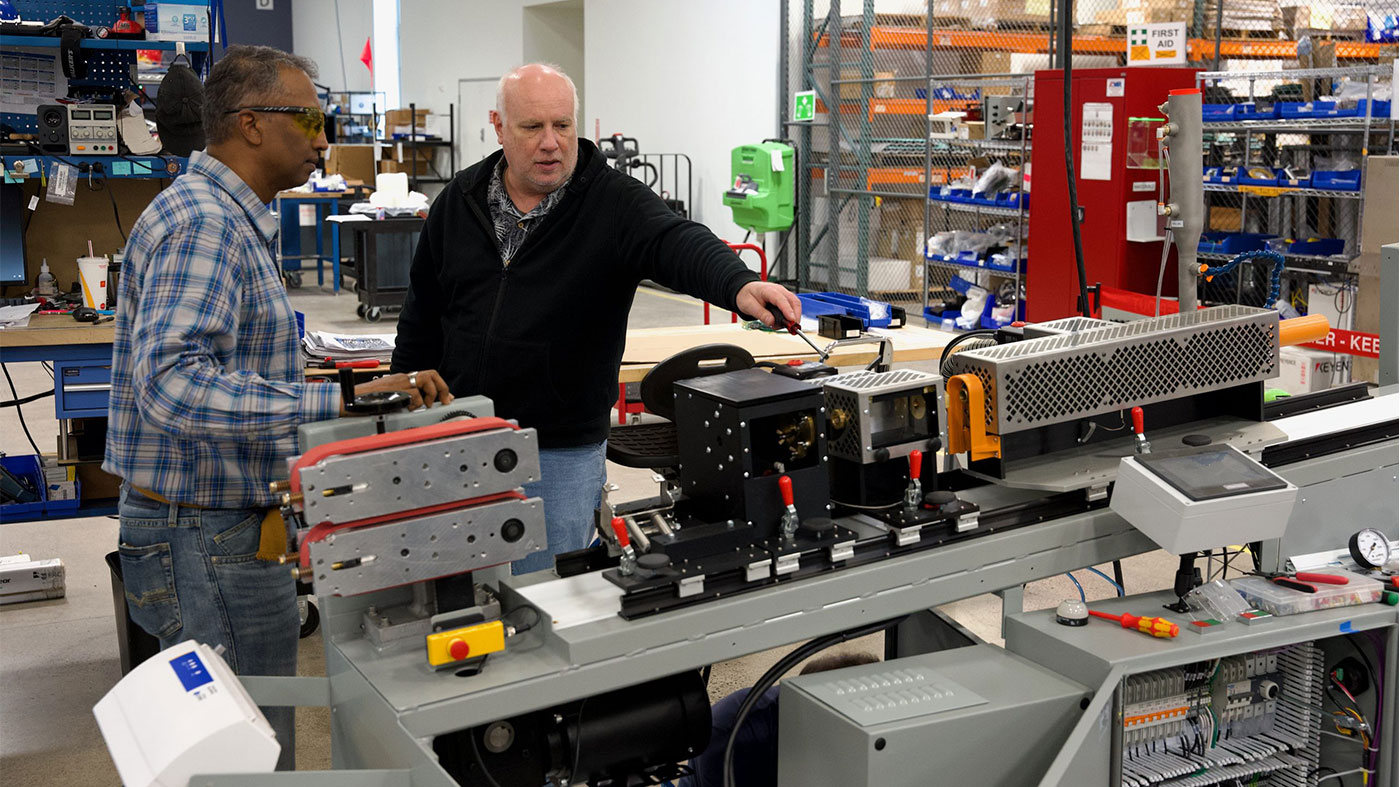
- Ability to Scale: In choosing a contract manufacturer, consider their scalability and adaptability. Their level of automation hints at efficiency, while company size indicates current capacity and growth potential. Volume discounts suggest cost benefits for large projects, and available expansion space signals readiness for future demands. These factors collectively gauge the manufacturer’s suitability for both immediate and long-term needs.
- Logistics Expertise: For companies looking to seamlessly navigate the global marketplace consider a contract manufacturers’ shipping logistics. A CM’s prowess in import/export logistics is invaluable. This expertise, combined with access to diverse transportation modes-land, ocean, and air-ensures that products can be efficiently shipped and received across various routes. Their ability to handle these logistics reduces potential bottlenecks, ensuring smooth operations and timely deliveries.
- Global Supply Chain: It is crucial for a contract manufacturer to have an efficient and exceptional supply chain. At DWFritz, our ability to produce multiple components in-house is a testament to our streamlined operations and operational efficiency. Adding to this, we offer 3D printing capabilities, giving us greater flexibility to meet client specifications swiftly. Moreover, our focus on regional sourcing enhances our ability to deliver quick production cycles while minimizing potential delays. Through this balanced approach of in-house production, regional sourcing, and 3D printing capabilities, we are committed to maintaining both product consistency and efficient logistics.
- Business Size: When choosing a contract manufacturer, also consider their company size as a scale in relation to your product. Being their largest client may strain their resources, while being the smallest might reduce your project’s priority. It’s crucial to select a manufacturer where your project aligns well with their capacity and attention levels..
- Quality Benchmarks: Compliance with established quality standards like ISO:9001 is a hallmark of a contract manufacturer’s dedication to delivering reliable, high-quality products. Experience in regulated industries such as medical, aerospace, or automotive further underscores this commitment. To ensure both market acceptability and aesthetic appeal, it’s essential to partner with a CM that not only adheres to industry benchmarks but also has a robust Quality Management System (QMS) in place. This organizational focus guarantees that rigorous training and audits are conducted, benefiting your product at every stage of its lifecycle.
- Interactivity: Effective communication is crucial when partnering with a contract manufacturer. Evaluate their responsiveness to emails, their availability for calls, and any potential language barriers you may encounter. If communication is challenging from the outset, it’s often a sign of future complications in resolving issues. To ensure a smooth collaboration, it’s essential that the CM staff are experienced and competent individuals in all key roles, particularly those who will serve as your main points of contact, such as department heads.
- Geopolitical Hazards: When evaluating a potential contract manufacturer, it’s crucial to consider the political risks involved. Trade disputes can lead to unforeseen tariffs or logistical complications. That’s why at DWFritz, we’ve embraced onshoring as a key component of our Risk Mitigation Strategy. By conducting all our manufacturing within the U.S., we minimize these kinds of risks, offering the potential for reshoring to clients who are considering moving their manufacturing back to domestic soil. This approach not only reduces the scope for global trade disruptions but also creates a predictable and stable production environment.
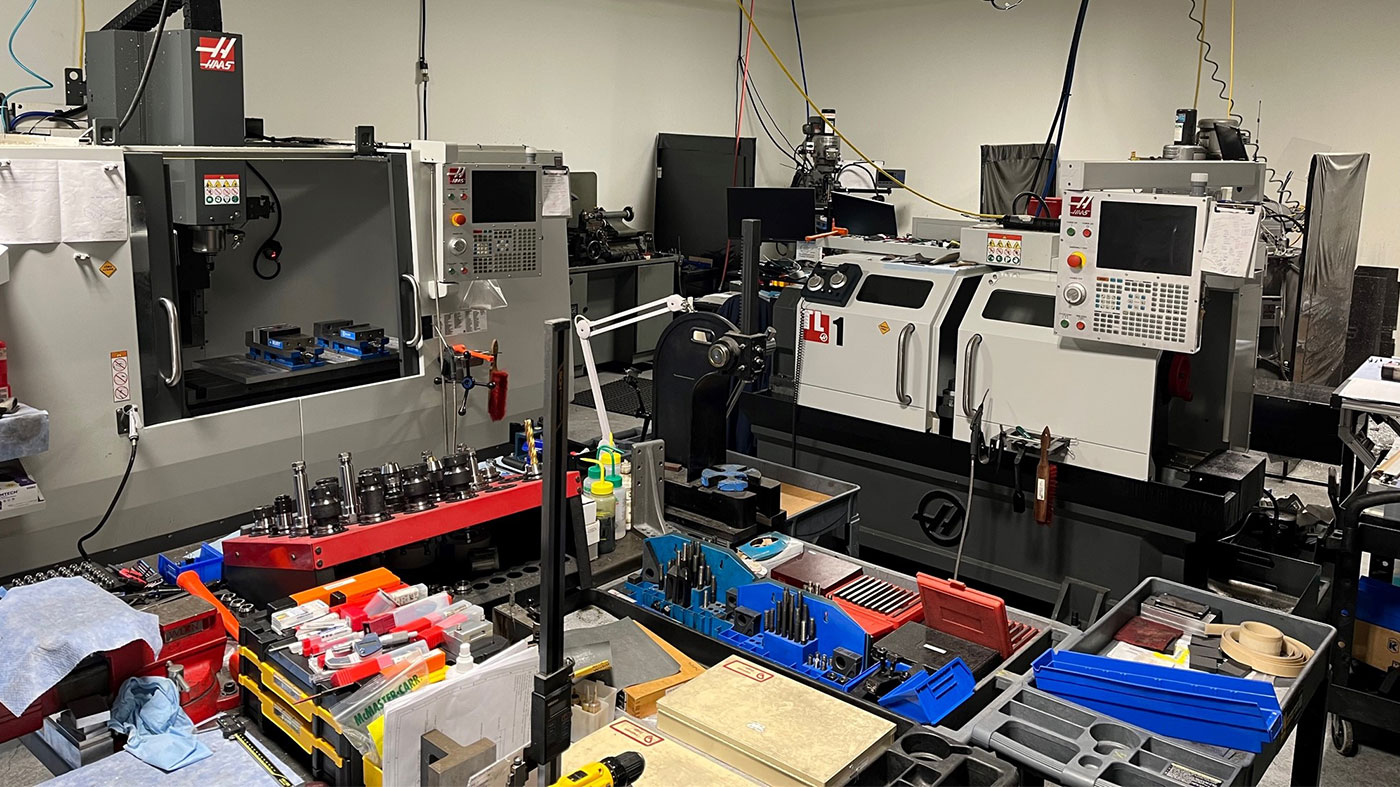
Choosing your Contract Manufacturing Wisely
In the complex and competitive landscape of contract manufacturing, every factor counts and should be considered carefully for who you choose to bring your product to market. Whether it’s safeguarding intellectual property or navigating international trade issues, each detail plays a role in your product’s success. Ideally, a relationship with a contract manufacturer is built to last, so it’s crucial to make a thorough decision and ask all relevant questions. At DWFritz Automation, we don’t just offer a service; we offer a partnership grounded in expertise and dedication. Our goal is to be your long-term precision contract manufacturer, handling the intricacies so you can focus on your vision. Choose DWFritz, and you’re opting for excellence at each step of the manufacturing journey.
